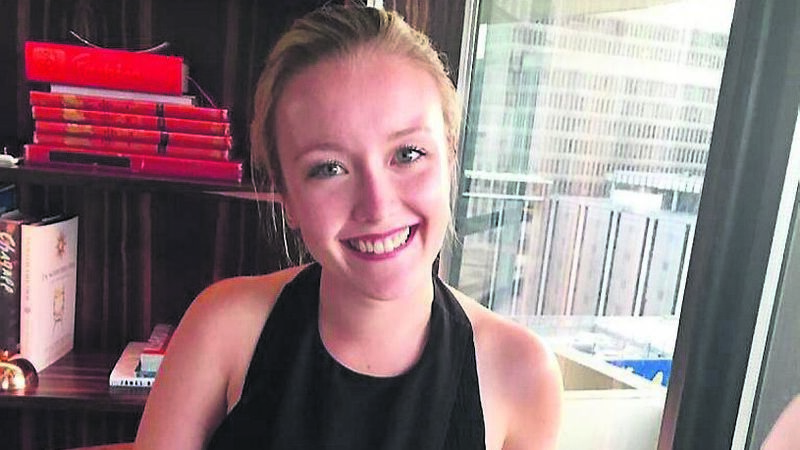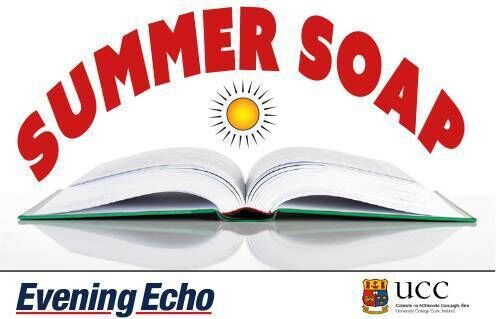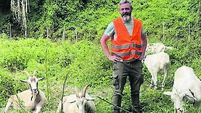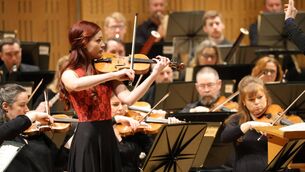An engineer and a writer... meet our next Summer Soap author

Catherine Madigan, author of the Summer Soap which starts on Monday
A STORY about a woman in search of meaning and connections in her life. That sums up the theme for the second Summer Soap, a 12-episode fictional story which starts in The Echo and online at EchoLive.ie on Monday.
Now in its eighth year, Summer Soap is a daily fictional series run in conjunction with the MA in creative writing programme at UCC.
The latest soap, entitled My Father Is A Spanish Soldier, was written by Catherine Madigan from the MA programme.
Catherine, an engineer, moved from Dublin to Cork four years ago to work in a medical technology company as a project manager. She is combining her full-time job with the MA, which she is doing part-time over two years.
Admitting that it’s “a little hard to combine both”, but grateful that the company she works for is giving her flexibility in her job, Catherine is using both sides of her brain.
There’s the logical problem-solving side used for her day job and the creative side that she uses for writing.
The biggest lesson she has learnt on the Masters programme is “getting into other people’s perspectives. So maybe the writing isn’t relevant to my job but I’m definitely getting a lot of empathy and understanding of people. That, I think, is relevant for any job.”
A graduate in engineering from University College Dublin, Catherine’s favourite subject at school was English. She also liked maths and physics.
Her soap is in part inspired by The Snapper by Roddy Doyle. The main character in Catherine’s soap is Ali, whose mother, Lydia, tells her daughter she became pregnant by a Spanish soldier as a result of a fling while on holiday in Santa Ponsa.
Ali’s father has no role in her life. But when Ali’s love interest says to her that she doesn’t look Spanish, it kick-starts a personal journey.
“Ali starts digging out photo albums, trying to understand whether there’s more to the story than what her mother told her,” explains Catherine.
“There is more to the story, but I don’t want to give away the ending.
“I hope there’s a little bit of mystery in it. Ali has a bit of a love story going on herself and she is on a quest to find out about her father.”
As well as being influenced by The Snapper, Catherine also remembers meeting Colm Meaney (who played the father of the pregnant girl in the film adapted from Roddy Doyle’s novel) on a flight to Santa Ponsa. And she borrowed from the genre of Mexican soap opera that she saw a lot of while on a Spanish exchange years ago.
“The family I was living with in Madrid used to watch Mexican soap operas all the time,” says Catherine.

“They’re more dramatic than Eastenders and Coronation Street.
“I came up with a couple of storylines around family lineage, family drama, and romance.”
Catherine’s soap is set in Cork. “I hope it’s written in a way that it could be the work of someone from Cork with local slang,” she says. “I’ve been here for a few years so I’ve gotten to know how people speak and their turn of phrase.
“Cork people have a real melody in their voice.”
Always interested in writing, Catherine “fell back into it during lockdown. I had more time to read and write. I did a few creative writing classes online and a couple of seminars.”
The Masters in creative writing is demanding - but very enjoyable, says Catherine.
“The past year has been mainly focused on fiction so we did a lot of short story writing,” she says of the course.
“Next year, I’ll start to focus on poetry and writing for other media. But fiction is my thing.
“The short stories I’ve written are probably works-in-progress. I don’t ever feel they’re quite done.
“I’ve sent a couple of short stories to different journals but I’ve had no success so far. I haven’t been submitting them for very long.
“I wouldn’t say I’m too disappointed at this point. I’ve had some nice feedback from places I’ve submitted to.
“So even if I get a ‘no’, the feedback is always positive.
“Also, I’m doing the Masters and working so I don’t worry too much about (getting published.) If it happens, brilliant. If it doesn’t, that’s OK too. I’m really enjoying the whole process.”
Next year, Catherine will write her thesis. “I haven’t decided what I might do, but it will probably be fiction. I’d love to eventually write a novel. Starting it would be a nice way to start my thesis.”
Asked if she’d consider giving up her day job to pursue a writing career, Catherine says she has no plans in the short or medium term to do that, adding: “I really like my job and the role that I have.”
However, Catherine thinks it’s possible to be a full-time writer in this country, provided you have a regular gig.
“We did a really good module last year called The Business of Writing. A lot of working writers, agents and publicists came to talk to us.
“I think you could write full-time, although you’d need something else like a column or lecturing or a bit of teaching.
“Unless you’re the equivalent of a Sally Rooney, it’s hard to write full time. I’m lucky to have a whole other career that I like.”
Catherine says that “a few people” among her colleagues on the Masters programme are planning to write full-time.
She has been reading widely, including short stories by American and Russian writers, as well as Irish writers such as James Joyce and Samuel Beckett.
“I like reading Irish writers,” she adds. “I’m reading Milkman by Anna Burns at the moment. I’ve read some Louise O’Neill, Naoise Dolan and Mike McCormack.”
It’s a different world from engineering but Catherine is clearly thriving on the contrast.







 App?
App?


